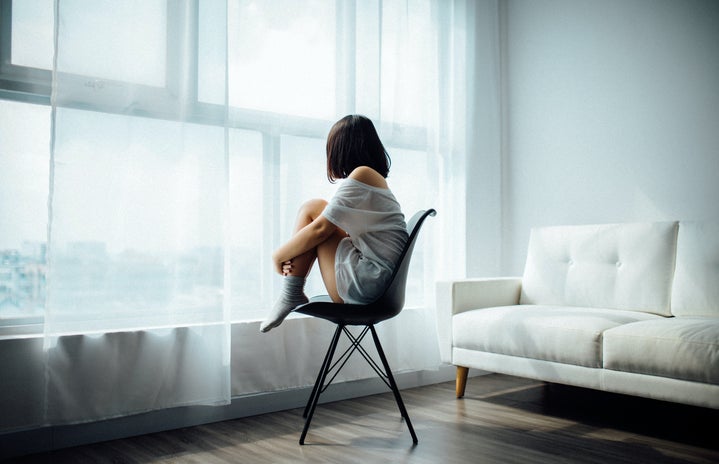I believe that part of living a happy, fulfilling life is being able to enjoy spending time alone. Having the ability to sit with yourself and feel secure in your own company is a skill that takes conscious time and effort to obtain, but is incredibly rewarding. It is comforting to know that you can count on yourself.
I also believe, however, that no one is truly able to “do it alone.”
One thing that always sets an alarm off in my brain is when people claim to be entirely “self-made.” While I am not looking to discredit the success and perseverance of those who overcame adversity, I believe that “self-made” is a myth.
Everyone has somebody somewhere who has helped you to get where you are — taught you, believed in you, changed you and loved you. In terms of careers, we rely on people listening to us, needing us to solve a problem, paying us, etc.
Humans exist in a symbiotic relationship with each other. From family and friends, to bosses, to whoever wove the clothes on your back, we rely on our connections to other people to survive.
In 2021 the “That Girl” trend rose to popularity, and in 2022 the “Clean Girl” aesthetic blew up on TikTok. Social media cycles out aesthetics non-stop, more specifically self-improvement aesthetics. While self-improvement is a good thing to strive for, it can be a dangerous game to try and achieve the “perfect version” of yourself.
In an article published by “The New Yorker,” Alexandra Schwartz writes, “We are being sold on the need to upgrade all parts of ourselves, all at once, including parts that we did not previously know needed upgrading.” Self-improvement is important, but partaking in it on the basis of aligning yourself with an internet aesthetic or achieving perfection is counterproductive, and arguably isn’t improvement at all.
If you look into aesthetics like “That Girl” and “Clean Girl,” you will find images of dewey makeup, iced lattes, lemon water, bullet journals, and planners, but you will also find the idea that you only need yourself.
There is nothing wrong with spending time alone. It is healthy and necessary, and enjoying your own company is important, but self-improvement doesn’t come from isolation.
Contrary to the conglomeration of lifestyle aesthetics circulating TikTok, happiness isn’t just a skinny girl in solitude. Self-love and improvement are nuanced, and are not achieved by simply subscribing to a particular aesthetic. Healing and self-improvement don’t happen in isolation.
The American capitalist focus on hyper-individualism (“pull yourself up by your bootstraps!”) and relying purely on yourself will not bring you peace, because human beings aren’t meant to “do it alone.” This notion is meant to keep you under the jurisdiction of social, economic and political institutions, while simultaneously letting you believe that you are the one in control.
It is pretty intuitive that having a healthy social life improves the quality of your life and mental health, but the necessity of human connection does not exist solely within social or sexual contexts. We are interconnected in all areas of life, and this isn’t something you can simply opt out of.
Any ideology, system or aesthetic that attempts to strip you of your individuality should be called into question, and so should any belief that argues for self-isolation in the name of improvement. We all exist as individuals within a larger collective. Community and relationships do not mean the absence of agency, and reliance does not necessarily mean weakness.
Learn to enjoy being alone — enjoying your own company means you like yourself! Take the time to become a person you consistently rely on, but don’t let yourself be fooled into thinking that achieving this goal stems solely from you. Rely on yourself and your relationships with others, and know that these not opposing forces.


